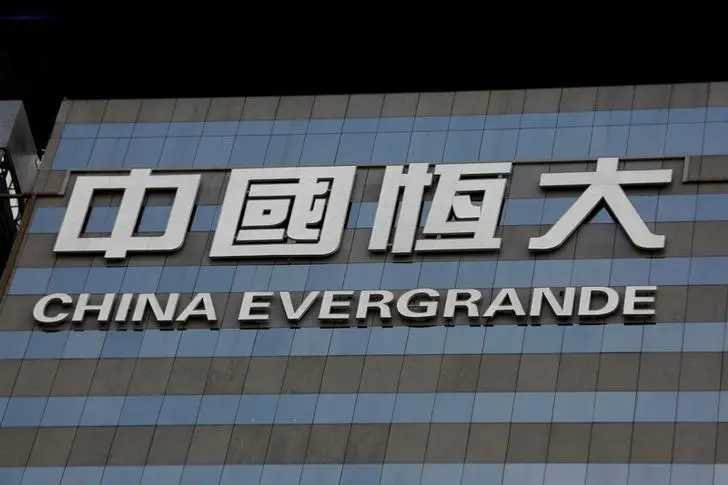PHOTO
(The author is a Reuters Breakingviews columnist. The opinions expressed are her own.)
HONG KONG - China Evergrande is up to its old tricks. The highly indebted real estate developer agreed to sell a slug of its prized property management arm at a $10.7 billion valuation. Boss Hui Ka Yan has come up with yet another way to buy himself some time.
A group of 14 investors, including Tencent and China’s CITIC conglomerate, are paying about $3 billion for 28% of the business. The funds have been earmarked for general corporate purposes. Evergrande could use the money.
The $38 billion company warned on Monday that first-half net profit would fall by nearly half, sparking a 10% decline in the stock price. In June, Moody’s gave its B1 rating on Evergrande a negative outlook and estimated operating cash flow would not cover debt due over the ensuing 18 months. Its net debt to equity stood at 152% in June, according to Citigroup. That’s down sharply, but leaves it higher than the 84% industry average.
With weaker mainland property sales there’s a rationale for offloading profitable and largely recession-proof arms. Several other Chinese developers have similar units queuing for initial public offerings in Hong Kong.
While peers are offering cleaner approaches, Evergrande’s is trickier. For one thing, there’s a put option for new investors. If the unit doesn’t go public within two years, they can force repayment with 10% interest. Hui, who owns 77% of the company, has given himself some options too. He can wait things out if rival IPOs don’t go well or overwhelm market demand.
Capital regularly flows in and out of Evergrande in curious ways. In December, it paid a $2.7 billion dividend despite its level of borrowing. In 2018, Hui reinvested $1 billion of a $1.5 billion payout – as the company was seeking to pledge its flagship Hong Kong tower for a loan – in a new Evergrande bond paying interest of up to 13.75%.
In that sense, this latest transaction will be all too familiar to Evergrande shareholders. It is yet another example of wheeling and dealing for shorter-term purposes. With some extra cash on the balance sheet today, other problems can be dealt with tomorrow.
CONTEXT NEWS
- China Evergrande on Aug. 17 warned that first-half net profit would drop 46% from 2019 levels as a result of the Covid-19 pandemic, foreign exchange fluctuations and investments in battery-powered cars.
- The company said on Aug. 14 it had sold 28% of its property management arm to a group of investors for HK$23.5 billion ($3 billion). It said the proceeds would be used for general corporate purposes.
- Sunac China Holdings is planning to spin off its management arm, it said on Aug. 6, arguing the deal would allow the management arm to fund its development independently while allowing Sunac to continue to benefit from its dividends.
(The author is a Reuters Breakingviews columnist. The opinions expressed are her own.)
(Editing by Una Galani and Jamie Lo) ((jennifer.hughes@thomsonreuters.com; Reuters Messaging: jennifer.hughes.thomsonreuters.com@reuters.net))





















